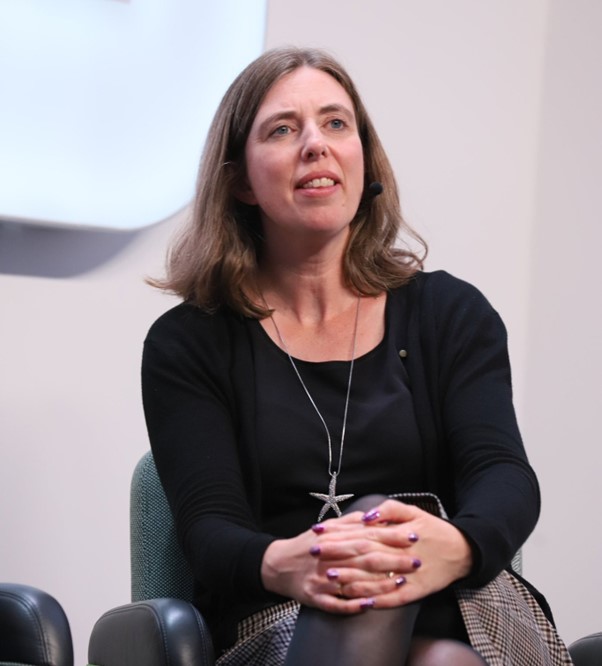Last month’s guest blog provided information about using personality types to understand other people better and communicate more kindly. This month Jen Gibbard, Virtual Assistant and Project Manager, shows how business operations are a great way to demonstrate kindness AND deliver business success.
In business it’s often easy to overlook the subtle ways kindness already plays a role in how we operate. From thoughtful communication to systems designed with people in mind, many of us are already weaving empathy into our everyday admin without realising. By becoming more intentional about these moments of kindness, we can amplify their impact and build businesses that are not only more human but also more effective and sustainable.
Kindness as a competitive advantage
Kindness isn’t fluff. It’s a powerful force that influences how people experience your business. In business operations, it shows up in how we communicate, how we design processes, and how we support the people behind the systems. When kindness is part of your operational DNA, you create an environment where people feel respected, empowered, and motivated. That leads to higher engagement, smoother collaboration, and stronger relationships all around.
You’re already doing it: everyday acts of operational kindness
The good news? You’re probably already incorporating kindness into your operations in lots of ways. Maybe it’s the way you start team emails with a warm greeting or the care you take when assigning deadlines. Kindness doesn’t have to be a grand gesture, it can live in the details. Here are a few ways it shows up (and how you can dial it up and do even more):
- Clear, supportive SOPs: Standard Operating Procedures can feel cold or robotic, but they don’t have to. Writing SOPs that are clear, easy to follow, and encouraging helps reduce stress and confusion. Add in steps like, ‘If you get stuck, here’s who to contact,’ to empower your team to seek support when they need it.
- Scheduling tools that respect boundaries: Kind operations mean respecting people’s time and energy. Use scheduling tools that prevent back-to-back meetings or encourage breaks. Build in buffers so people can breathe.
- Appreciative feedback loops: Operational systems often focus on catching errors or correcting behaviour. But you can also build in feedback loops that highlight what’s working. For example, after a project wraps, include a quick team reflection that starts with, ‘What went really well?’ before moving into ‘What could be improved?’
Examples of kind admin in action
One small but powerful example of kindness in action is the decision to remove Any Other Business (AOB) from meeting agendas. At first glance, AOB might seem like a harmless catch-all, but in practice, it often leads to extended meetings, off-topic discussions, and last-minute surprises. For many, it can create anxiety, never quite knowing what’s going to be thrown in at the end.
By removing AOB, you create a more predictable, respectful meeting structure. Participants know what to expect, can prepare accordingly, and are less likely to feel caught off guard. It signals that their time is valued and that meetings are intentional, not chaotic. This small operational change reflects a deeper culture of kindness that respects boundaries and values inclusion and contribution.
Another powerful tool rooted in kindness is the use of Personal User Manuals. I’m seeing more and more of my own clients as well as other businesses using these simple, human-centered documents, which invite team members to share how they work best. The kind of information you might choose to share in a Personal User Manual includes a person’s communication style, their personality type, their working patterns, and any support needs. By offering a space for people to express their individual preferences and boundaries in a supportive, non-confrontational way, I’ve seen how Personal User Manuals foster empathy and understanding across teams, especially those working remotely. They reduce miscommunication, set clear expectations, and encourage a culture where people feel safe being themselves.
Kindness as a long-term investment
Kindness in operations isn’t just a feel-good strategy, it’s a long-term investment in the health and sustainability of your business. Systems built with empathy are easier to maintain, scale, and adapt. They help reduce burnout, increase retention, and make your business a better place to work and collaborate.
Ultimately, kindness isn’t a distraction from good business. It is good business. So the next time you’re reviewing a process, sending a team update, or planning your next meeting, ask yourself: how can I make this just a little more human?
Your business, and the people behind it, will thank you.
Jen Gibbard is a Virtual Assistant and freelance Project Manager based in Darlington in the North East. She uses her long and varied career in admin and operations to help make admin easier for busy business owners. Learn more about Jen on her website, www.jennifergibbard.com, or connect with her on LinkedIn.
Photo by Dayne Topkin via Unsplash

Let's work together
Bring kindness to life with workshops, talks and other support that make a real difference — boosting wellbeing, improving performance and creating lasting positive change.
Find out how
